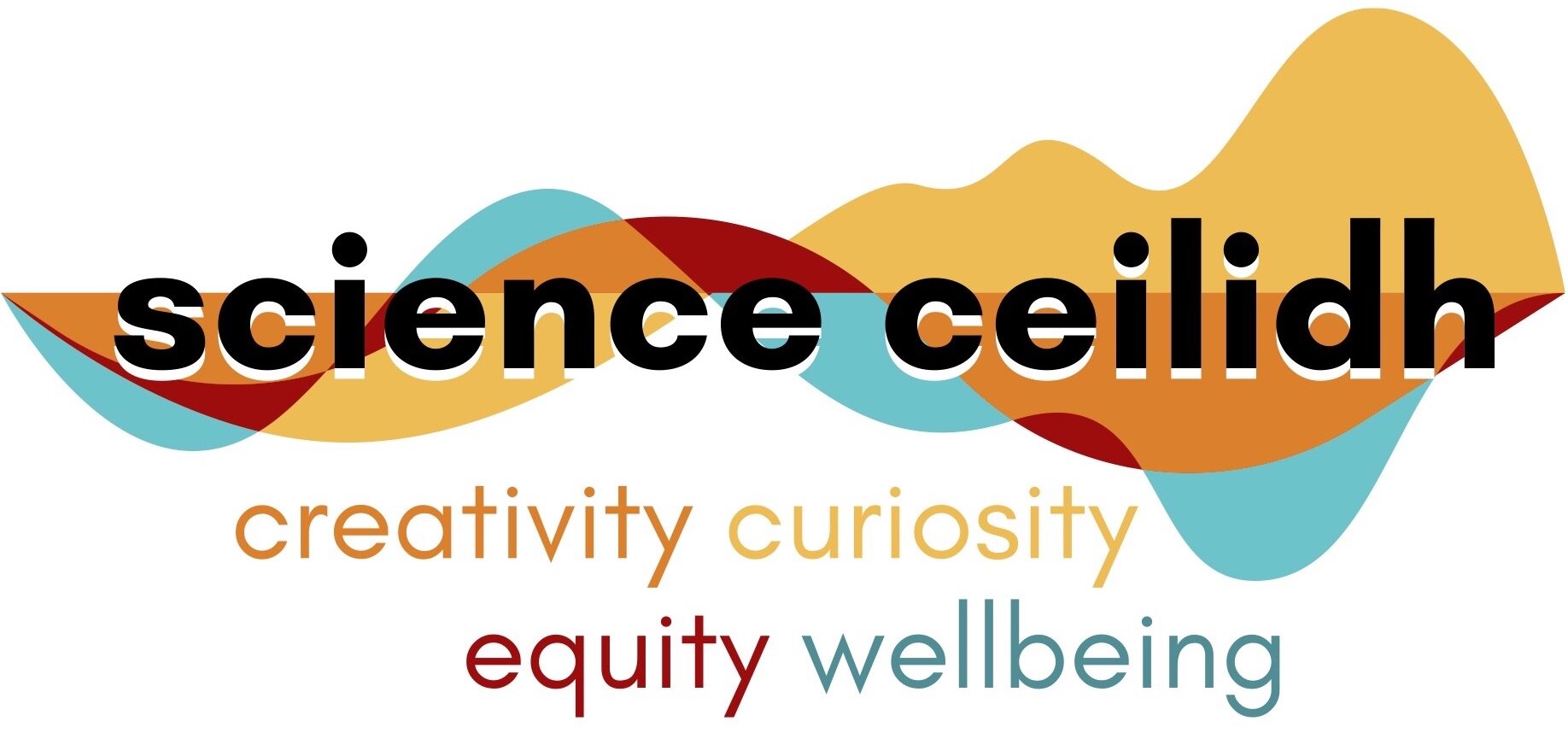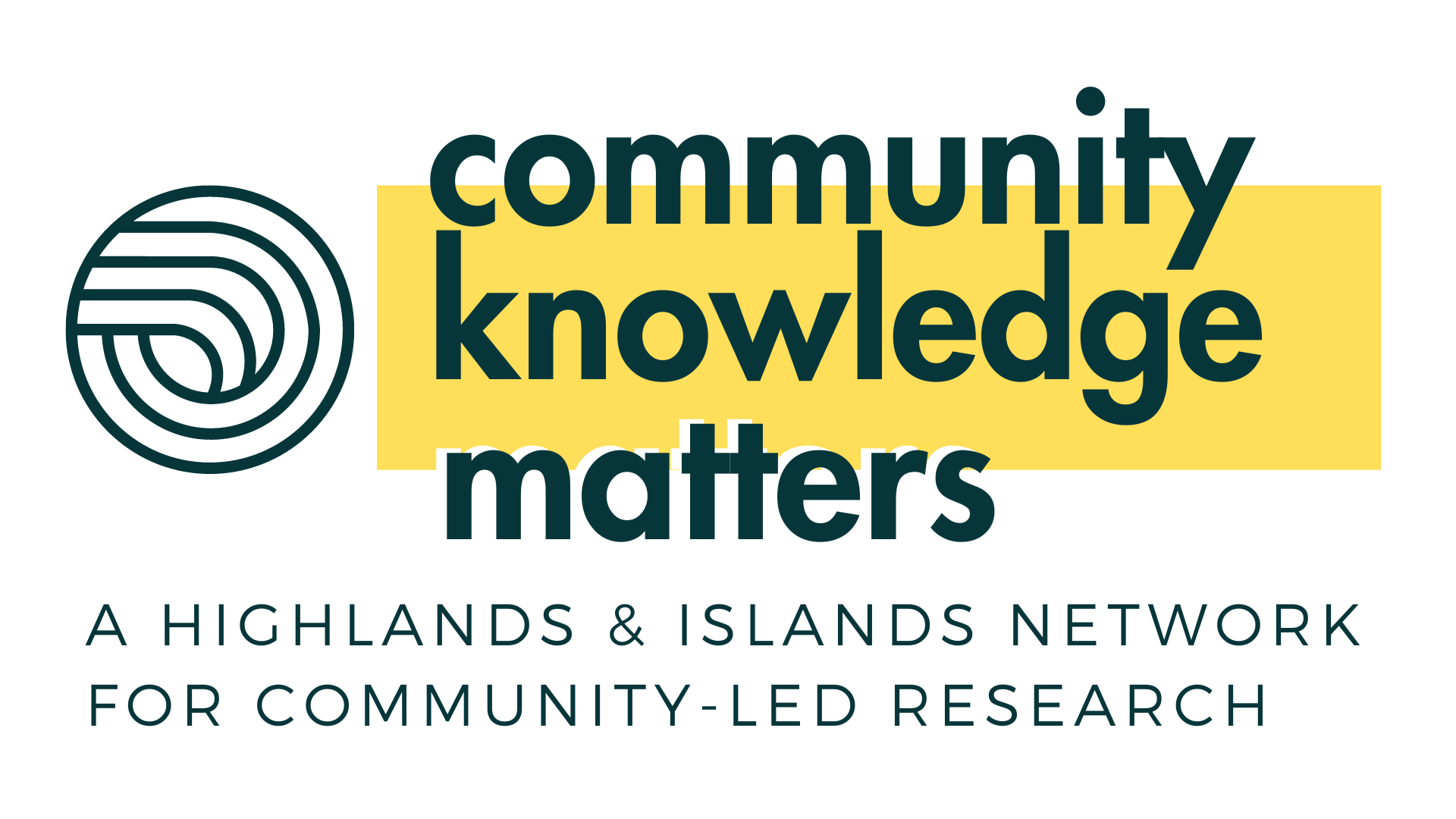Community Knowledge Matters is a new network bringing together people interested in community-led research shaping practice & policy change in mental health and wellbeing in the Highlands & Islands and beyond.
The network will build collective voice and capacity through a programme of activities – including network events, collation of resources and funded training opportunities – working together to support more community knowledge represented at a systemic level.
Who is this for?
All are welcome, including:
Grassroots communities and organisations in the Highlands and Islands who are interested in being more involved in research to support community action including around mental health and wellbeing.
Researchers who are keen to support more equitable processes and partnerships that centre communities through an ethics of care.
Practitioners and Decision-makers interested in being more driven by community-led research and working together to support a more equitable and diverse system evidence-base.
Stakeholders from across Scotland and beyond interested in learning from this network and sharing your own experiences.
Find out more and inform our activities at our open community of practice sessions.
We’ll be hosting regular open community of practice sessions to give you a chance to find out more and get to know others in the network. This will also be a chance for open conversations on issues that matter to you. All are welcome, and you do not need to have been involved in the Ideas Fund previously, nor have any experience in community-researcher partnerships.
Our next Community of Practice is Wednesday 6 December 11am - 12.30pm
To sign up to the network, please fill out the form below or get in touch.
Who is currently involved and wider partnerships
This network is funded by the Ideas Fund and supported by a first working group including members from Open Project (Shannon Boston), the Moray Wellbeing Hub (Heidi Tweedie), the University of the Highlands and Islands (Professor Sarah-Anne Munoz, Anna Paaso), Youthlink Scotland & Third Sector Research Forum (Dr Amy Calder), Scottish Community Development Centre (David Allan), Public Health Scotland (Dr Caroline King), Scottish Policy and Research Exchange (Dr Dave Bell) and the Scottish Public Engagement Network. It is facilitated by Science Ceilidh (Lewis Hou, Lauren Pyott) .
If you know of any other organisations or individuals who might be interested in being involved in these conversations as a stakeholder and joining the network, please do get in touch. We are especially keen to extend the network to include groups and organisations who are typically under-represented in these processes.
The Ideas Fund and wider learning
This work builds from The Ideas Fund programme supporting groups to lead partnerships with researchers exploring locally driven community-based research, peer research and knowledge exchange on mental wellbeing. This includes a more participatory grant making process and an active peer network of 21 funded projects across the Highlands and Islands ranging from Dementia-led research of the role arts to support mental wellbeing to young peer researchers exploring the lack of safe spaces in Shetland.
You can see more about the current group of Ideas Fund projects currently funded here. Some of the learning which has contributed to the development of this network can be seen in this blog where we write about the story so far, as well as what this has meant for researchers and communities. You can also check out the newly published Insight Report from the Ideas Fund with more in-depth discussions around the Idea Fund’s role in supporting community-led collaboration with researchers.
This is connected to wider work of The Ideas Fund and the British Science Association working with Collaborate CIC in the three areas (Highlands & Islands, Northwest Northern Ireland and Hull) to explore how funded partnership work could support collective action for ‘healthier’ systems; specifically, the systems that impact on collaboration between communities and researchers. You can read more about this here.
We are also hosting a network examining these themes around community-researcher partnerships around climate change specifically. You can find out more here.





